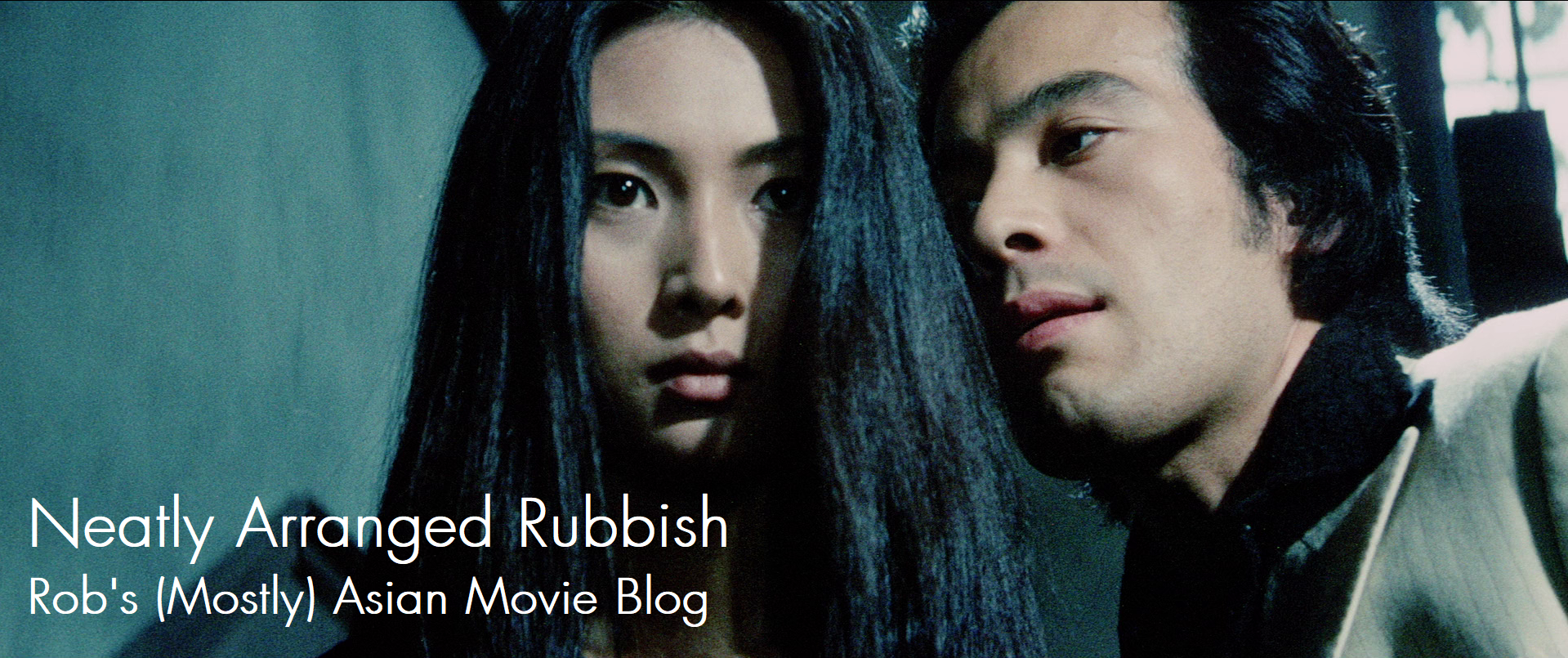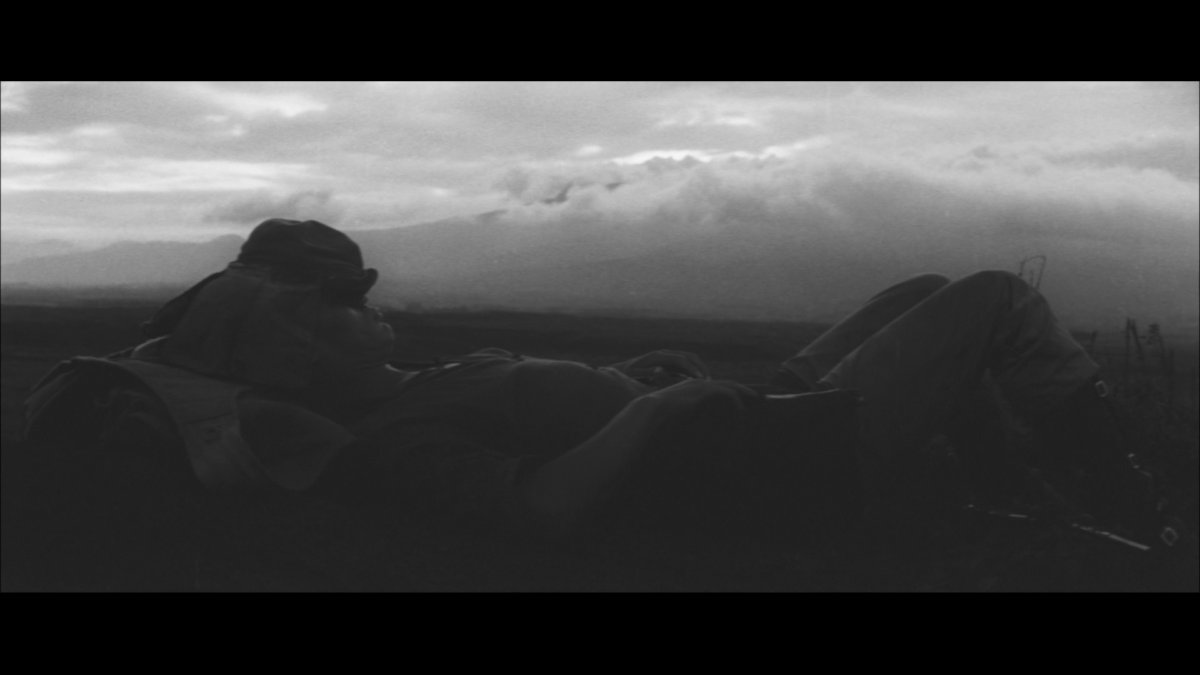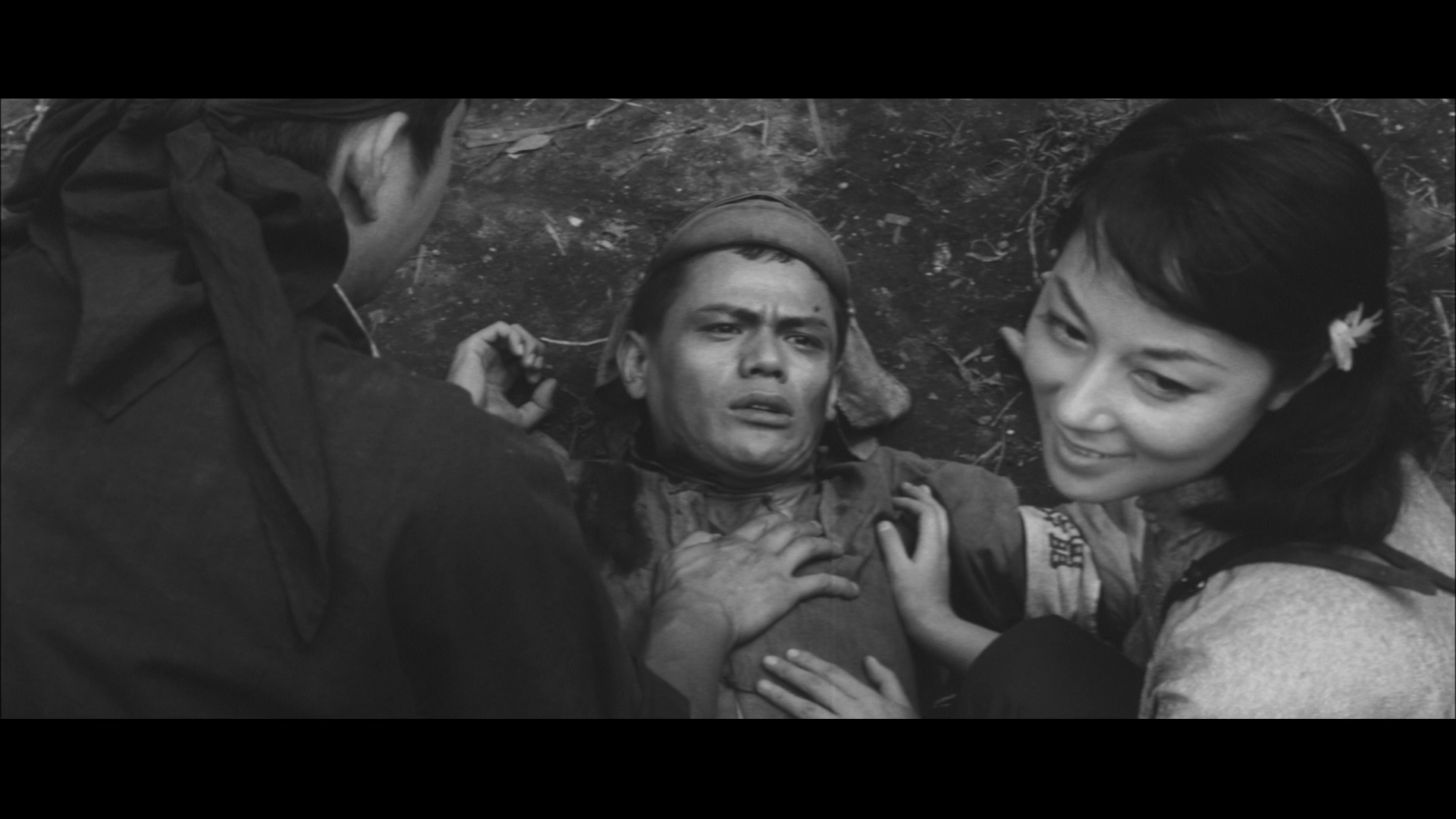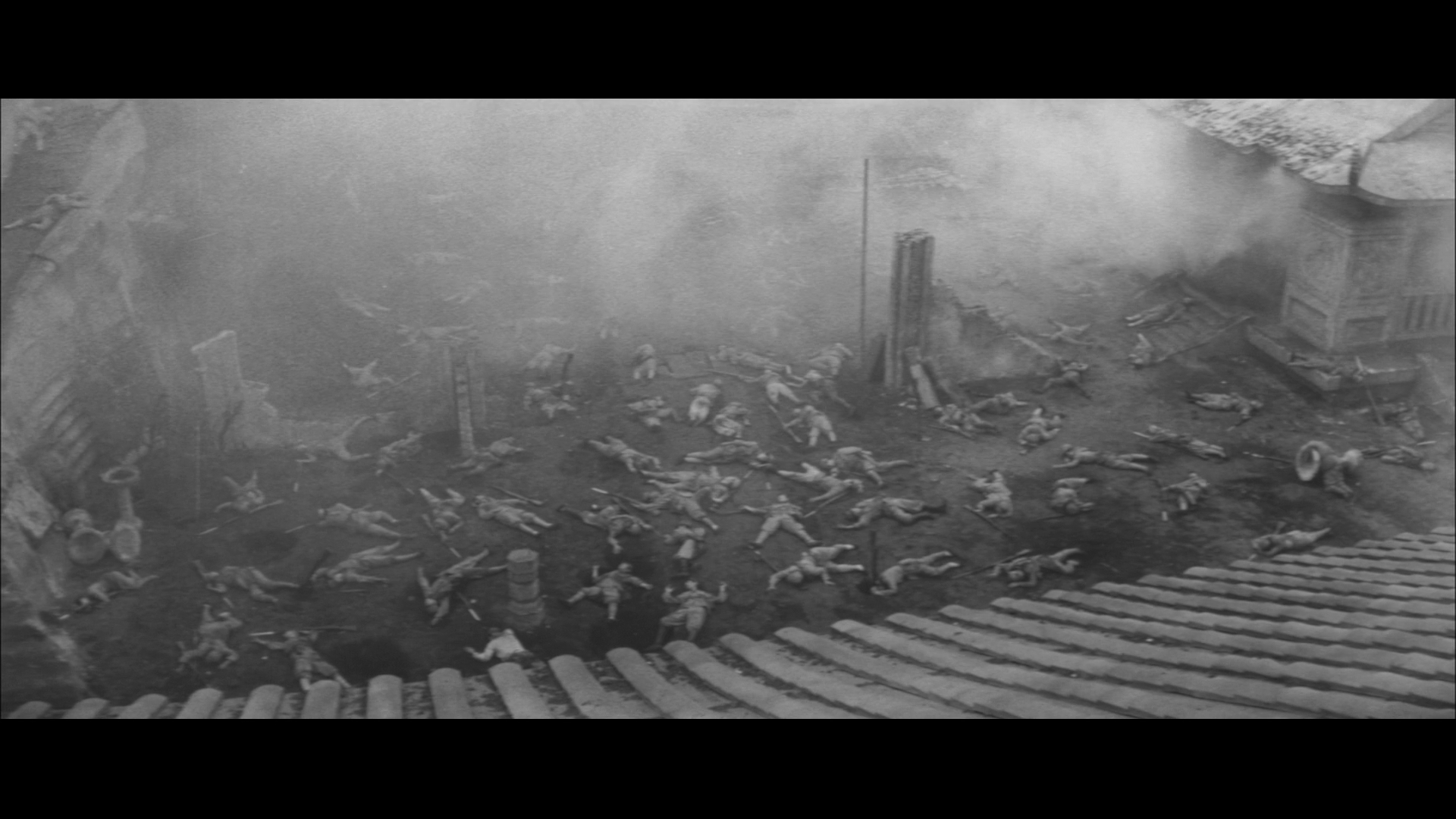Last Updated on May 12, 2021 by rob
In Manchuria during WW2, newspaper reporter Okubo (Makoto Sato) arrives at a beleaguered frontline garrison nicknamed Desperate Outpost and immediately takes an interest in the double suicide of a captain and his lover who supposedly killed themselves on the eve of battle. However when an old flame of Okubo’s named Tomie (Izumi Yukimura) inadvertently gives away his true motives to Deputy Commander Fujioka and prime suspect Sergeant Ishii (Ichiro Nakatani) Okubo only narrowly escapes arrest. But then Okubo and the troops are plunged into a mighty battle against overwhelming Chinese forces. Can they survive?
Okamoto’s early films are unremarkable imitations of American crime movies in which an intriguing mystery setup takes second place to interminable sequences of the heroes being captured by the bad guys, only to escape, get caught again, then rinse-repeat for 90 mins. You can tell their director isn’t terribly fired up by the subject matter and if one remembers anything about them it’s Okamoto’s eager use of match cutting. That’s the editing technique whereby you match the movement of a person or object in one location with that of another in the following shot. However, Desperate Outpost, the first film Okamoto both wrote and directed, shows him much more engaged as a filmmaker and the result is a significant step up from his previous movies. His fluid camerawork, dynamic compositions and match cuts (I especially liked the jump from Okubo’s bullets tearing across the neck of a human-shaped silhouette target to one of the prostitutes making a cut-throat motion as she wipes her neck) enhance the drama yet aren’t the only point of interest here.
Although set in wartime Manchuria this isn’t so much a war movie (or at least not until the final 15 mins) as it is a murder mystery that just happens to be set on the battlefront. It features a crack shot hero posing as a newspaper reporter questioning assorted suspects about a supposed double suicide while investigating the scene of the crime and eventually uncovering the ugly truth. It’s a programmer but one in which a talented director puts his own distinctive stamp on the material. For starters this is very much infused with the feel of an American western. The opening shot of Makoto Sato, silhouetted against the dawn, as he wakes, grabs his saddlebags and leaps off a gully straight onto his horse to gallop furiously away, so channels the spirit of a John Ford western it instantly charms you. Desperate Outpost’s bleak situations are consistently undercut with sly humour. Sequences such as Okubo’s attempts to prevent Deputy Commander Fujioka (Tadao Nakamaru) from executing a couple of resistance fighters, or preventing Desperate Outpost’s randy Doc from slobbering all over Tomi are very amusing.
It’s not an out and out comedy as such but there’s this vein of satirical humour running right the way through it, one which apparently offended snooty Japanese critics of the time who felt the war in Manchuria wasn’t a subject to be treated with what they perceived as this kind of irreverence. In response Okamoto, who was drafted into the war in 1945 as a factory worker and who saw virtually all his classmates perish, points out that war itself is insane, hence satire an entirely appropriate way of treating the topic. He has a point. The performances are all very enjoyable with lead Makoto Sato somewhat atypical casting as the hero since he’s much more of a character actor than a star. He certainly doesn’t have the film star looks (to say the least!) of a Toshiro Mifune. In fact one of the odd things here is that Mifune is actually in the film but playing a small role as an officer gone crazy.
It may have been that Mifune was still under contract to Toho at this point and therefore stuck into roles he had no control over. Yet despite that, Sato’s casting ends up working rather well. His plain looks and animal cunning jive nicely with Okamoto’s empathy for the ordinary grunts who have to suffer and die while their superiors never come anywhere near the front line. The list of suspects – especially Desperate Outpost’s Sergeant Ishii (Ichiro Nakatani), who is set up as the murderer but who turns out to be a far more urbane and intelligent man than first impressions suggest – keep our attention and Okubo’s investigations are nicely balanced with a romantic subplot between himself and Tomi, a former military nurse forced into prostitution by the army and who sees in her reunion with Okubo an opportunity to redeem herself. Tomi’s fate is no big surprise but it does result in an effectively bittersweet payoff in which Okubo grants to the dead woman at her burial what she most desired in life.
In moments like this – whether it’s Okubo’s decision to join up with Koji Tsuruta’s team of good-hearted bandits, or the prostitutes who dream of saving enough money so they can open a coffee shop after the war – the film exudes a warmth, an empathy for the ordinary person that’s both pleasing and touching. This humanism also shows itself in the subtle contrast between a command centre nicknamed Shogunbyo (with all the echoes of feudal tradition and subservience the title implies), a place populated by corrupt and hysterical officers insisting the men of Desperate Outpost stay there even when it means certain death, with that of the titular outpost in which heroic grunts face their end with stoicism and humour. It’s easy to see which of the two sides Okamoto is on and although as Westerners we understandably flinch at the idea of identifying with Japanese soldiers – whose wartime behaviour reached incredible levels of savagery – in movie terms, the soldiers of Desperate Outpost are no different than the heroic types in any American western or war film.
They’re an easy crowd to sympathise with and Okamoto gives them a fantastic send off in which Okubo and a handful of Outpost survivors face off against hundreds of Chinese soldiers in a superbly orchestrated action sequence that’s part The Alamo and part The Wild Bunch. Although Desperate Outpost never transcends its genre (despite some excellent setpieces its disparate elements rarely feel more than competently marshalled) it is a good film and especially notable for its humour and satirical tone in an era when most war movies were deadly serious. It proved so popular with Japanese audiences that four more films – two of them also directed by Okamoto – would follow. Of those two, Fort Graveyard (1960) pushes the satire even further and Westward Desperado (1965), which follows the fortunes of a band of musicians transferred to the front line, combines humanism with a satirical element pushed to absurdist extremes. The result there is a flat out masterpiece.




